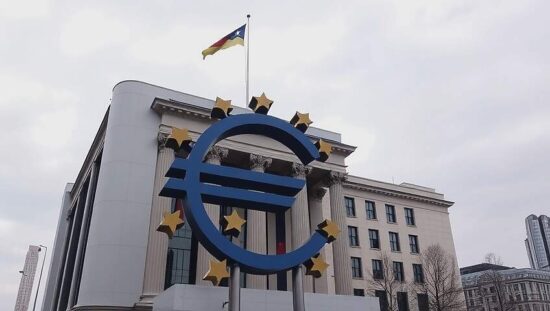European Central Bank Lowers Interest Rate, Cites Near-Two-Percent Inflation Target
The European Central Bank (ECB) has cut its key interest rate by 25 basis points, the bank announced on Thursday after a meeting of its governing council in Frankfurt, Germany.
The ECB decided to lower the deposit facility rate, the main refinancing operations and the marginal lending facility rate, effective from June 11, 2025, to 2.0%, 2.15% and 2.4%, respectively. The decision was justified by the fact that inflation is currently near the ECB’s medium-term target of two percent.
According to the ECB’s new Eurosystem projections, the average annual inflation rate is expected to be 2.0% in 2025, 1.6% in 2026 and 2.0% in 2027. The downward revisions of the projections from March, by 0.3 percentage points for both 2025 and 2026, are mainly due to the assumption of lower energy prices and a stronger euro.
ECB experts expect the real GDP growth rate to be around 0.9% in 2025, 1.1% in 2026 and 1.3% in 2027. The unchanged growth projection for 2025 is attributed to an unexpectedly strong first quarter, combined with less favorable prospects for the remainder of the year.
While uncertainty related to trade policy is likely to weigh on corporate investment and exports in the short term, increasing public investments in defense and infrastructure are expected to support growth in the medium term. As real incomes rise and the labor market remains robust, households will be able to spend more and, together with favorable financing conditions, this should increase the resilience of the economy to global shocks.
The ECB governing council is “determined to ensure a sustainable stabilization of inflation at the medium-term target of two percent.” In the current situation, characterized by “unusual uncertainty” the setting of the appropriate monetary policy course will depend on data and will be decided from meeting to meeting, the bank emphasized.





